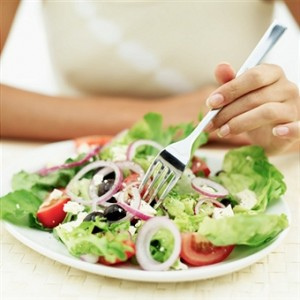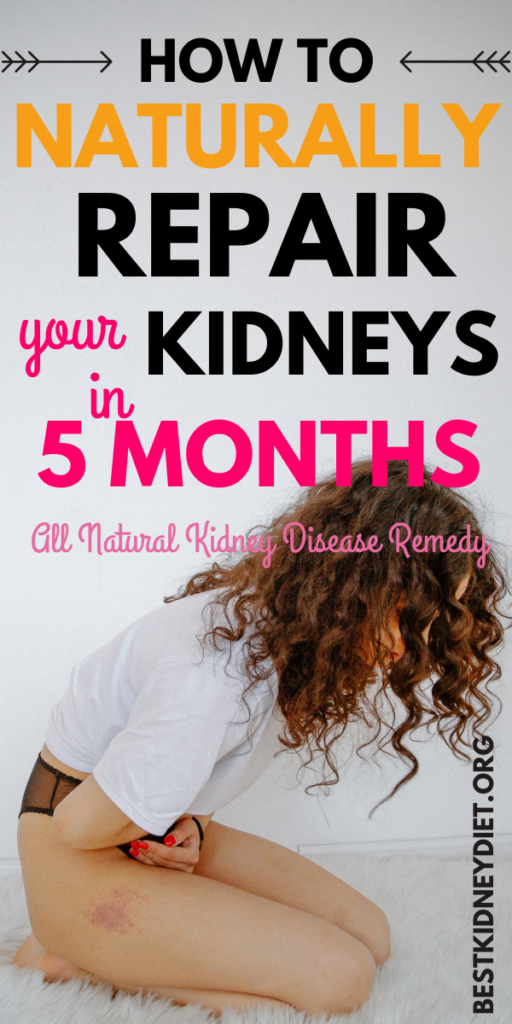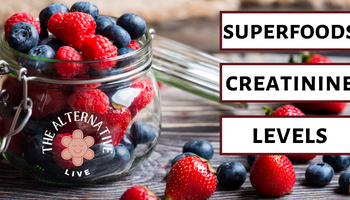The kidney is the major player in the regulation of your blood pressure, so if you are suffering from chronic kidney disease, it is necessary to control what you eat and drink, because your kidneys can’t remove waste from your body as they should, and following a diet suitable for the kidneys will help you stay healthy for a longer period.
What diet is best for kidney disease?
It is a way of eating that will help protect your kidneys from further damage. This means that you reduce some foods and fluids so that certain minerals do not accumulate in your body, and you must make sure that you are getting the right balance of protein, calories, vitamins and minerals.
If your chronic kidney failure is in its early stages, you may be restricted about what you eat, but as your disease gets worse you need to be more careful about the food you get into your body.
Your doctor may recommend working with a dietitian to choose foods that are easy on your kidneys and comfortable for them.
Here are some points he could advise you on:
Sodium reduction:
This mineral is found naturally in many foods and is the most common ingredient in table salt.
Sodium affects blood pressure and helps maintain water balance in the body. Healthy kidneys keep sodium within its normal levels, but if you suffer from chronic kidney failure, both: Sodium and excess fluid will accumulate in your body, which leads to many problems, such as: swollen ankles, high blood pressure, shortness of breath, and fluid accumulation around the heart and lungs Therefore, you should try to include less than two grams of sodium in your daily diet, and for that try these simple tips:
• Eat at home. Most fast foods are high in sodium.
• Try using new spices and herbs in your food instead of salt.
• Avoid table salt and spices that contain high amounts of sodium, such as soy sauce, sea salt and garlic salt.
• Wash preserved foods in water before serving, such as vegetables, beans, meat and fish.
• Stay as far as you can from canned foods, as they are also high in sodium.
• Read labels when you shop and choose foods that are low in sodium.
• Wash preserved foods in water before serving, such as vegetables, beans, meat and fish.
Reducing Calcium and Phosphorous:
These minerals are necessary to maintain bone health and strength, and when the kidneys work well, they remove the phosphorous that you do not need, and in patients with chronic renal failure, phosphorous levels may rise, because the kidneys do not work well, which leads to a higher risk of heart disease, and their levels may decrease. Calcium, and the body withdraws – to compensate for this – calcium from the bones, making them weak, brittle and prone to fractures.
Your doctor may advise you not to take more than 1,000 milligrams of phosphorous per day if you have advanced stages of chronic renal failure. To achieve this, you must:
• Limit meat, chicken, fish and dairy foods.
• Eat plenty of fresh fruits and vegetables.
• Eat corn and rice.
• Choose foods with low levels of phosphorous.
• Drink light colored soft drinks.
Foods high in calcium are also high in phosphorous, so your doctor may recommend that you cut back on foods rich in calcium, and may also tell you to stop taking an over-the-counter calcium supplement.
Reduce the amount of potassium:
This mineral helps your nerves and muscles function well, but if you have chronic kidney failure, your body will not be able to get rid of the excess potassium, which leads to it building up in large amounts in the blood, and thus causing serious heart problems.
Potassium is found in many fruits and vegetables, such as: bananas, potatoes, avocados and melons. These foods affect the level of potassium in the blood. If your doctor tells you to reduce potassium in your diet, you should choose foods that contain low amounts of potassium, such as:
• Cranberry or cranberry juice.
• Strawberry and raspberry.
• Peach.
• Pineapple.
• Apple or apple juice.
• Boiled cauliflower.
• Cabbage.
When a patient with chronic kidney disease gets worse, he may need to make other changes to his diet such as reducing protein-rich foods, especially animal protein such as meat, seafood and dairy products.
Liquids:
If you have the early stages of chronic kidney disease, you may not need to reduce fluids, but the situation may be different in the advanced stages. Then you will need to limit the amount of fluids you drink with constant controlling of your weight.


